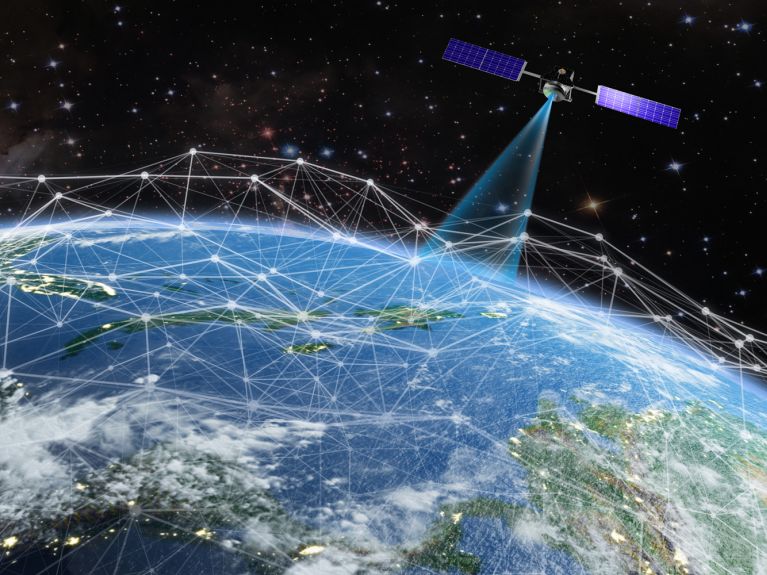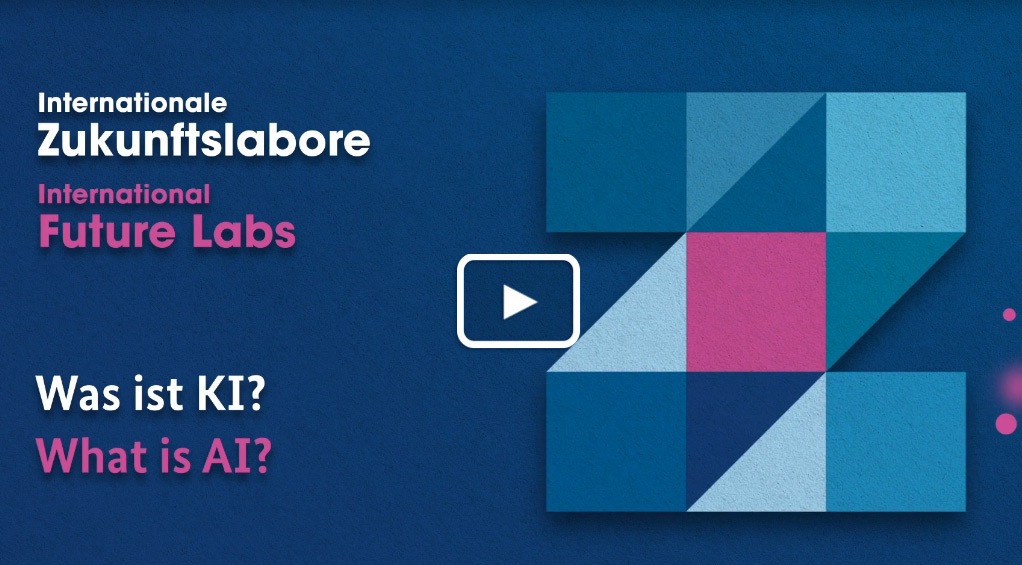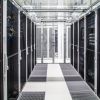AI future labs
Germany is also supporting international exchange in the field of artificial intelligence. Here are three examples.

Since 2020 three teams in Germany – based in Berlin, Hanover and Munich – have been working on the subjects of earth observation, personalised medicine and drug development within the framework of a German Research Ministry-funded programme called International Future Labs for Artificial Intelligence. Each of the three laboratories brings together up to twelve researchers from different countries, including the USA, France, Switzerland, Mexico, Argentina, Australia, Singapore, New Zealand and India.
Data from space
Eight hundred satellites are orbiting the earth collecting enormous amounts of data on changes in land surfaces, the oceans and the atmosphere. Using AI techniques, the Artificial Intelligence for Earth Observation (AI4EO) future lab at the German Aerospace Center (DLR) in Munich wants to improve the evaluation of data in order to gain new insights. A small team of “core scientists” here is supported by 70 junior researchers who each come to Germany for six months with a scholarship. www.ai4eo.de
Tailormade therapies
The international team of researchers at the Leibniz Future Lab for Artificial Intelligence (LeibnizAILab) based at the University of Hanover would like to use AI systems to tailor medical therapies to the individual needs of patients. “The project brings together international researchers with diverse competencies. These differences can be used to develop high-quality solutions that take into account the different cultural, social and economic conditions,” says Professor Niloy Ganguly from the Indian Institute of Technology, Kharagpur. www.leibniz-ai-lab.de
Intelligent biolabs
Can you enable laboratory devices to develop new medicines, foods or plastics autonomously? This is precisely the field being researched by the Future Lab for AI-Based Bioprocess Development (KIWI-biolab), a joint project of Technische Universität Berlin, the University of Hildesheim and the University of Greifswald. It combines the AI application fields of biotechnology, machine learning, process engineering and robotics. German researchers are supported by colleagues from South Korea, Vietnam, Russia, Australia, Switzerland, the USA, Mexico and Argentina. www.kiwi-biolab.de
You would like to receive regular information about Germany? Subscribe here:



